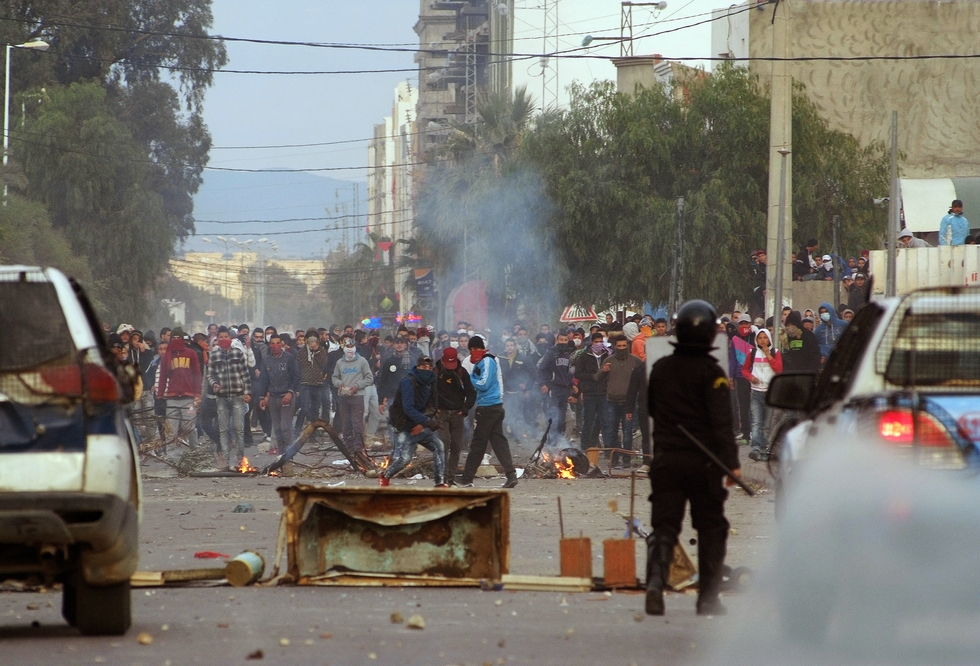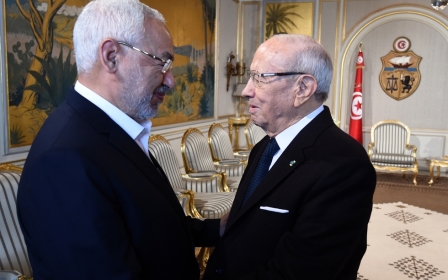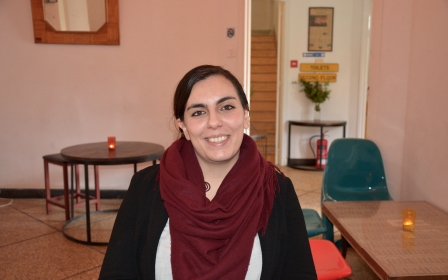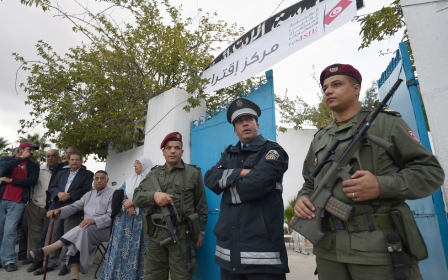Tunisian island plunged into conflict between protesters, police

Clashes between protesters and police engulfed the Tunisian island city of Kerkennah until early Friday morning, when military reinforcements were able to restore order, according to the country’s Ministry of Interior.
The ministry said about 250 demonstrators attacked security forces on Thursday night with stones and Molotov cocktails, burning a police station, two police cars and two national guard posts. Police were forced to withdraw after five officers were injured.
Najah Chaari, a resident of Kerkennah, told Middle East Eye: “The police used excessive force. They launched tear gas canisters and dispersed protesters.” Local hospital staff have been treating victims of tear gas inhalation and blunt-force trauma.
The clashes erupted after local fishermen stopped trucks from entering the facilities of Petrofac, a global energy company that operates a gas facility on the island along with Tunisia's national oil and gas company.
Chaari said that resulting pollution has damaged the economy of the island, where 90 percent of the residents rely on the sea for their livelihoods. “These companies are killing marine life,” he said.
A former corporate manager for Petrofac who spoke on condition of anonymity disagreed. "That's impossible," he said. "Petrofac is producing gas, not oil."
Tensions began to rise on the island on 3 April after police forcibly dispersed people at a sit-in outside the Petrofac facility. The participants, members of an unemployed graduates movement, had been protesting against the cancellation of a welfare agreement between Petrofac and the government.
Tunisian journalist and researcher Aymen Abderrahmen told Middle East Eye that Petrofac had rescinded a pact with the local government to donate to the fund that paid the unemployed graduates a stipend.
Petrofac’s association with the unemployed graduates movement began after the 2011 revolution, when members demanded jobs from Petrofac and another oil company.
According to Abderrahmen, the jobs never materialized, then a few months ago Petrofac stopped paying the annual fee, motivating the protesters to begin their sit-in.
The former Petrofac corporate manager sees it differently: "My job was to manage community relations. We gave the unemployed graduates access to money through the environmental fund. Now they want more. I predicted this would happen."
This week, protests became more widespread. On 12 April, the local general labour union organised a general strike in solidarity with the sit-in protesters. Tensions escalated and three members of the media were injured in clashes.
Rached Zouari, a cameraman for Nessma TV, had his nose broken, not by police but by demonstrators. Reporters Without Borders condemned the violence.
On mainland Tunisia, boat captains and dock workers have been blocking police lorries from driving onto ferries in the city of Sfax, which is the main maritime access point to Kerkennah.
The original sit-in protesters who were dispersed and arrested by police on 3 April remain in jail.
Chafik Ayadi, a Popular Front MP, called for “their release and a roadmap for development of Kerkennah". The government has yet to respond with specific plans for development.
Five years on from its revolution, Tunisia has seen a surge in protests. In January, an unemployed graduate who was taken off a list of government jobs electrocuted himself in the interior city of Kasserine.
His death set off protests in his hometown, which spread across the country.
Middle East Eye propose une couverture et une analyse indépendantes et incomparables du Moyen-Orient, de l’Afrique du Nord et d’autres régions du monde. Pour en savoir plus sur la reprise de ce contenu et les frais qui s’appliquent, veuillez remplir ce formulaire [en anglais]. Pour en savoir plus sur MEE, cliquez ici [en anglais].




